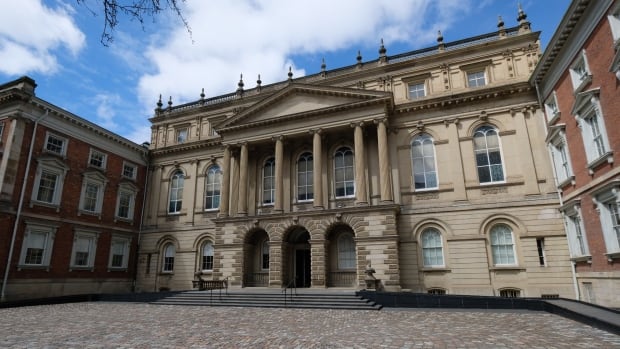The Law Society of Ontario (LSO) will decide whether or not to open the doors of family court to paralegals today by voting on a licence that would allow them to provide some family legal services.
If the proposal is green-lit, qualified paralegals will eventually be permitted to help clients navigate family court by walking them through procedures — like filing deadlines. It could also help them in preparing and completing applications for simple joint and uncontested divorces, domestic contracts and name changes.
Stakeholders have been grappling with the scope of this licence for five years. It was originally recommended to Ontario’s Attorney General in a 2017 report to help address access to justice in family court, where the majority of litigants are now self-represented, largely because they can’t afford a lawyer.
The version that’s up for a vote today is narrower than what many paralegals and some experts were hoping for, but paralegal LSO board member Michelle Lomazzo says it’s a start.
“It’s this or nothing … at least it’s a foot in the door,” she told CBC Toronto. “I believe we’ll be able to add things to it over time.”
A broader version of the licence — which would have allowed paralegals to represent clients in court for divorces, child support and spousal support, and to draft separation agreements — was dropped just before a LSO vote in February, because lawyers and the judiciary were against it.
“We didn’t have the votes,” said Lomazzo. “Hopefully this passes … if you’re not accustomed to filling out forms or even to the court process, it’s super intimidating for anybody to navigate.”
If it’s approved, paralegals will have to complete 260 hours, or about three months, of full-time education and training, and pass an exam to obtain the licence. Since those programs still have to be developed, Lomazzo says it’ll be at least two years before paralegals can start providing family legal services.
Court system ‘not user-friendly’ for self-representation
Leona Harvie, from Aurora, Ont., wishes she could have turned to a paralegal for help navigating the system in 2015, when she started self-representing after she could no longer afford a lawyer for her divorce.
“There was a lot of trial and error, a lot of costly mistakes,” she said. “Our court system is not user-friendly and is not overly accessible to the general public, who are the very taxpayers who fund the system — so that’s a problem.”

Harvie says she, like many middle-class Canadians, fell into a gap in the system where she made too much money to qualify for legal aid but was “financially exhausted” by lawyer’s fees.
The number of people self-representing in family court has been on the rise since at least 2014, according to Statistics Canada. In the 2019-2020 fiscal year, 58 per cent of litigants in family court were self-represented across the country, and experts say that number is closer to 80 per cent in urban centres like Toronto.
“Family law is the area in which we see the greatest pressure on the system,” said Julie Macfarlane, a law professor emerita at the University of Windsor.
Macfarlane founded the National Self-Represented Litigants Project in 2013, after her research showed most people who appear in court without a lawyer can’t afford one, or have run out of money to continue paying a lawyer.
“We need change now,” she said. “The window that’s being opened here is far too narrow, and also doesn’t reflect what has been said in previous studies about the level of paralegal experience and expertise.”

Macfarlane’s biggest criticism concerns the limitations put on paralegals for divorces.
“There is no basis on which [paralegals] can practise in any kind of a contested divorce here,” said Macfarlane. “I think that that just rules out far too many cases.”
Judiciary on board, family lawyers opposed
The narrower focus does work for the judiciary, which would allow paralegals to appear in court on motions to change child support where a person’s income is less than $150,000 (and determined by their employer) and to respond to proceedings to enforce support payments through this licence.
In a letter to the LSO, Chief Justice Geoffrey Morawetz of the Superior Court of Justice and Chief Justice Lise Maisonneuve of the Ontario Court of Justice said the licence “will improve access to justice and serve the needs of vulnerable family law clients.”
The Family Lawyers Association told CBC Toronto in a statement that it doesn’t endorse the licence, but will ask to be consulted on implementation if it’s approved.
When asked why the association doesn’t support this proposal, the FLA pointed to its past submissions opposing the broader licence.
In those, the FLA argued the licence will not enhance access to justice because many family lawyers offer comparable rates to paralegals; that lower-income family cases are not less complex; and that the proposed training isn’t enough to achieve the legal expertise needed to protect the interests of clients.
Lomazzo disagrees, and hopes her fellow members of the LSO’s board of directors will vote in favour of the new licence today.
“It shouldn’t be about what paralegals or lawyers want,” she said. “It’s about access to justice for the people of Ontario.”


